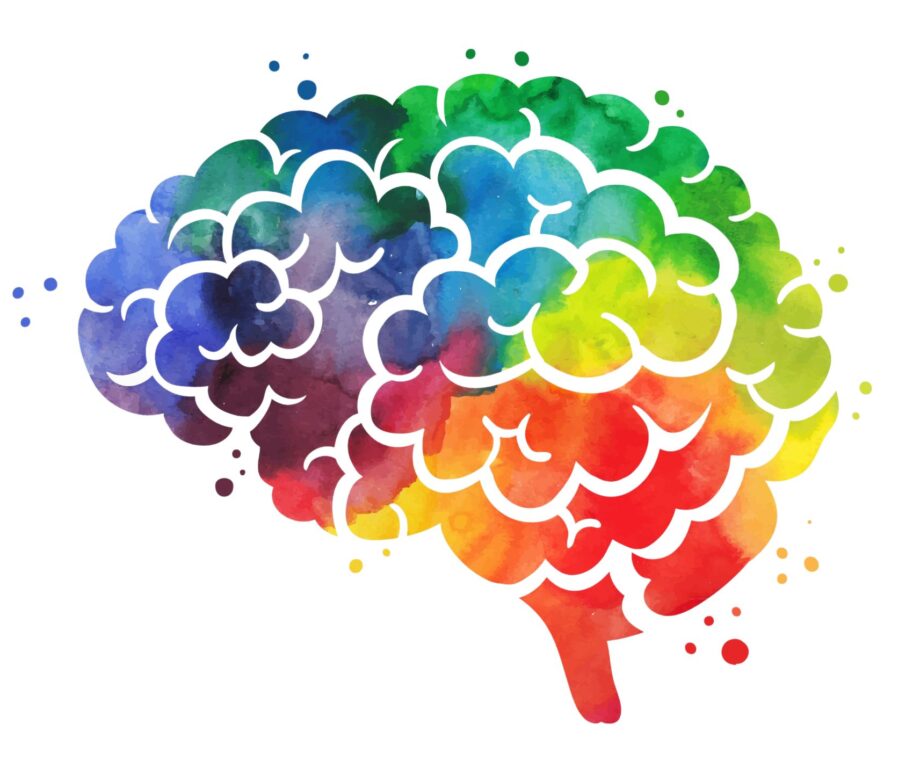
It weighs just three pounds and information signals sent from the body’s CPU clock in at an astonishing 268 miles an hour. The human brain is a medical and biological marvel and doctors stress the importance of doing everything we can to keep our noggins humming. “When someone has a healthy brain, that person can realize a full potential,” says Dr. Rafael A. Ortiz, executive director of neurosciences at White Plains Hospital. “There are multiple determinants that influence how our brains develop, grow, adapt and respond to stress and adversity.” While keeping our minds sharp and our bodies healthy is a lifelong pursuit, getting older brings on a new set of challenges. “As individuals age, some areas of the brain become thinner or shrink, with the decline usually noted after the age of 40 based on some studies,” says Dr. Paul Lleva, director of stroke at Greenwich Hospital. “The brain undergoes changes and may begin to lose certain circuits and [the] ability to adapt, known as plasticity. Aging also puts individuals at risk for developing neurodegenerative diseases such as Alzheimer’s disease and stroke. All these changes can affect various cognitive domains, which includes memory.” But it’s also important to distinguish between so-called senior moments and more “pathological aging,” says Dr. Jessica Zwerling, director of the Montefiore Hudson Valley Center for Excellence in Alzheimer’s disease. “It’s normal to maybe take a while to remember the name of a movie or the actor in a movie. It may come to you at inopportune times, but it does come to you.” More concerning is “where someone may be getting lost on routes they normally take, or they can’t complete tasks they [usually] can. It’s across the life span, not just older adults,” she says. So keep your mind sharp and healthy with this advice from the experts:
1. Be a health-conscious grill master this summer and be a more MINDful eater.
Dr. Ortiz stresses how a sensible diet can “diminish the risk of strokes and improve memory function.” Next time you fire up the backyard barbecue, keep the menu lean. “Summer grilling of fish and vegetables is recommended over red meat,” he advises.
When it comes to eating “brain-friendly foods,” says Dr. Lleva, hit your local farmer’s market and load up on the fresh produce that is readily available in the warmer months. Also, check out the catch of the day at your local fish market to increase your intake of brain- (and heart-) healthy seafood.
Speaking of diet, hitting up that summer farmer’s market is a smart strategy. That’s in part because—though it’s a mouthful to say—sticking to a MIND diet (Mediterranean Intervention for Neurodegenerative Delay), which focuses on more plant-based foods and limits animal-based foods with lots of saturated fats, “targets the healthy brain,” explains Dr. Zwerling. “It’s looking at farm-to-table food and avoiding overly processed food.” This approach is so important for heart and mind health that Zwerling says as a society, we need to do more to make these foods accessible to those in need. Says Zwerling: “Not everyone has access to farm-to-table. We have to bring it to those communities.”

2. Waltz into a brain-healthy life.
If you’re looking for a new hobby or activity with your partner, ballroom dancing may be a good choice. Dr. Zwerling says a colleague of hers is doing work studying the benefits of ballroom dancing and overall cognitive health. “When you think about dance steps, it’s mimicking the neurocircuitry and kind of reinforcing that executive function,” she says.

3. Keep your mind and your social calendar full.
Dr. Zwerling likes to tout the “Three H’s” to keep your mind sharp: Habits, hobbies and happiness. Hobbies doesn’t necessarily mean picking up the New York Times crossword puzzle, says Dr. Zwerling, “but they should be a part of what’s culturally relevant to you. Whether it’s gardening outside or partaking in a reminiscence therapy group or book club. Leisure activities have an overall effect on brain health.” The last H, happiness, is especially important. “If you’re depressed or anxious, brain and cognitive health can look quite worse compared to someone who is happy and healthy,” she says. A good way to feel joy and keep your brain sharp is to enjoy the company of others and never stop being a student. “Stay mentally active through regular social engagement,” advises Dr. Lleva. “Read more, learn a new language or skill, create art, take classes and continue to challenge your brain!”

4. Keep the heart pumping, too.
Exercise is universally touted to not only strengthen your heart health, but also ward off cognitive decline. “Engage in regular physical activity, which has been shown to reduce the risk of dementia,” says Dr. Lleva. Summer is the perfect time to do all sorts of outdoor exercise—from playing tennis or pickleball to swimming to going on morning or after-dinner walks. After all that activity, getting a good night’s sleep and maintaining a steady snooze schedule of at least seven hours of sleep a night is also key in keeping brain health decline in check.





